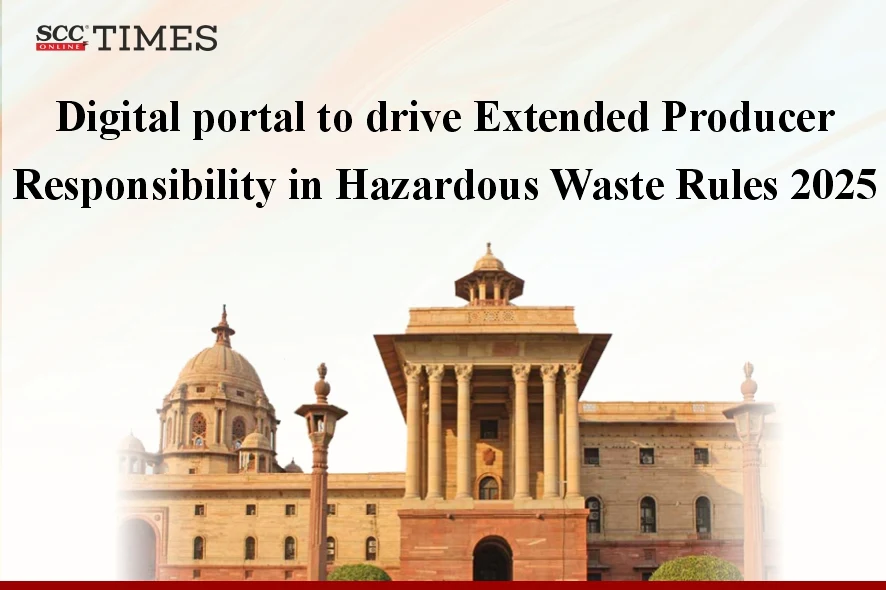On 1-7-2025, the Ministry of Environment, Forest and Climate Change notified Hazardous and Other Wastes (Management and Transboundary Movement) Amendment Rules, 2025 to ensure safe handling, generation, processing, treatment, package, storage, transportation, use reprocessing, collection, conversion, and offering for sale, destruction and disposal of Hazardous Waste. This will come into effect from 1-4-2026.
Key Points:
- To introduce provisions related to Extended Producer Responsibility (EPR) for Scrap of Non-Ferrous Metals, Ministry has amended Hazardous and Other Wastes (Management and Transboundary Movement) Rules, 2016.
- For interpretation of the new rules, the scope and definition of extended producer responsibility is introduced along with several other terms, such as-
- environmentally sound management of scrap
- non-ferrous metals
- orphaned products
- standard operating procedure
- The Central Pollution Control Board (‘CPCB’) will manage the implementations of these rules though an ‘online portal’ registering the following-
- manufacturer
- producer
- collection agent
- refurbisher
- recycler
- Through these portals CPCB the registration and filing of half yearly and annual returns, fulfilling and transaction of EPR certificate and sharing of other relevant information.
- These entities will have to register on this portal and based on the capacity of scrap of non-ferrous metals generated, recycled refurbished or handled by these members, annual charges/fees will be imposed on them by CPCB.
- The producers are mandated to meet annual recycling targets defined in Schedule-XI (EPR obligation of Producer). These targets can be fulfilled either by direct recycling or by purchasing EPR certificates from registered recyclers through the portal.
- Manufacturers are also required to incorporate minimum percentages of domestically recycled non-ferrous metals into their new products as specified in Schedule-XIII. Exemptions may be granted by CPCB in cases of statutory or technical limitations.
- Refurbishing of listed products made of non-ferrous metals is permitted and refurbishers will produce EPR certificate on portal which producers can use to defer their EPR obligations temporarily.
- As per Rule 60, CPCB will be empowered to impose environmental compensation on entities that fail to meet their EPR obligations or furnish false information. This penalty ensures accountability and reinforces compliance with the rules.
- A Steering Committee has been constituted by the Government to oversee implementation, resolve disputes, update recycling targets, and recommend measures for improving compliance under these rules.
-
Responsibilities have been assigned to State Governments, Municipalities, and Pollution Control Boards to support infrastructure development, worker welfare, public awareness, and enforce compliance with the rules at the grassroots level.


